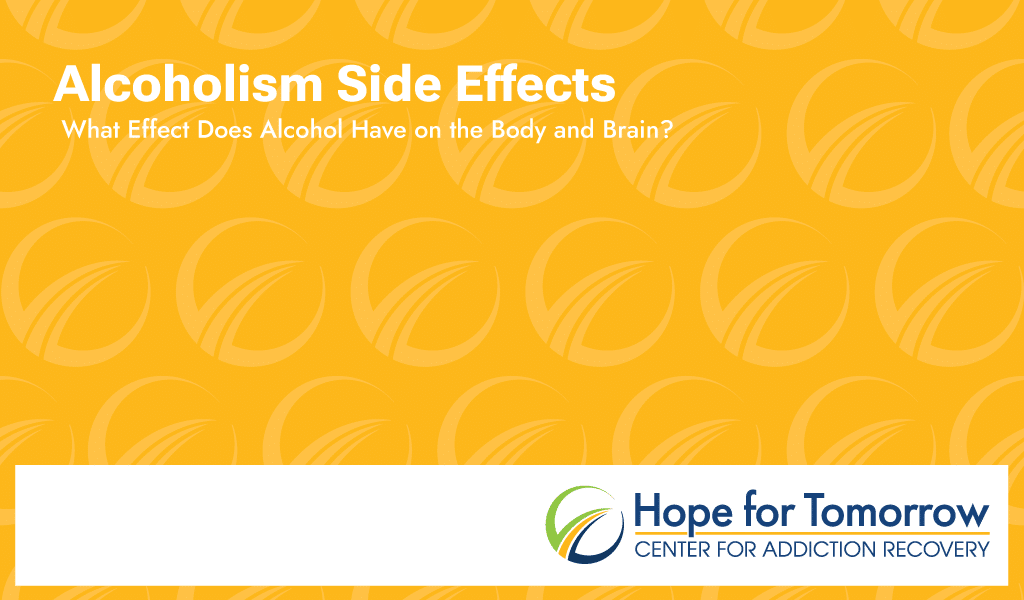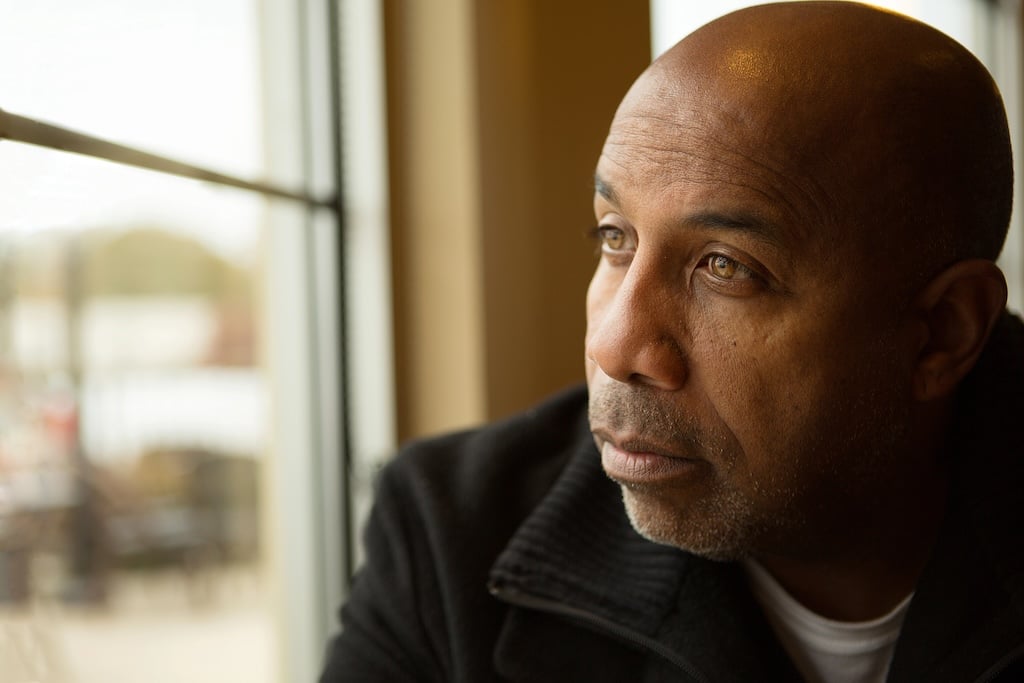

When the doctor diagnoses your husband with colon cancer, it feels like your world stops spinning. It’s still in the early stages. That means recovery is possible. The doctor, oddly, says your husband will need to stop drinking. You know that will be a challenge, because your husband drinks every day. You’ve suspected he has an alcohol use disorder, but he doesn’t want to get help, so you haven’t bothered him too much about it. Surely he’ll be willing to make the change with his life on the line, though. Then, the doctor makes a surprising suggestion: the cancer may be a byproduct of his alcohol consumption. Is that true? Can alcoholism really cause cancer?
There are many alcoholism side effects people are unaware of. Whether it be the slurred speech people associate with alcohol use, or something as serious as cancer, alcohol impacts the bodies and lives of everyone who drinks it. This is especially true for those with alcohol use disorder. According to recent data, there was an average of 58,000 West Virginians with alcohol use disorder in any given year. Many of them may not even realize what impact their alcohol use, and the side effects that come with it, have on them. We’re very familiar with these side effects at Hope for Tomorrow, and we think as many people should know them as possible.
Once you ingest alcohol, it travels down your esophagus and into your stomach. Absorption starts in your lower stomach and upper small intestines. Then, it travels through your blood to every body part, including the areas it impacts most severely: the brain and the liver.
The central nervous system consists of your brain and spinal cord, and alcohol influences it significantly.
Usually, the blood-brain barrier protects the brain from harmful substances. That isn’t the case when it comes to alcohol. Alcohol’s chemical makeup helps it to pass through the blood-brain barrier easily, and then it travels throughout the brain.
Alcohol is a depressant, so as it spreads through your brain, it slows down the activity there. Neurons, which are your brain cells, communicate with each other through chemical signals called neurotransmitters. Alcohol interferes with the rate of neuron firing, especially related to the neurotransmitters GABA and glutamate. GABA helps naturally calm your body, while glutamate is an excitatory neurotransmitter that helps with memory and energizing your brain cells. Alcohol increases GABA activity in your brain, while inhibiting glutamate activity. This produces symptoms of intoxication, such as relaxation, lack of coordination, poor balance, slurred speech, and memory lapses.
Alcohol also influences the dopamine in your brain. Dopamine plays an important role in feelings of pleasure and motivation, and also helps with other functions such as sleep and learning. Alcohol increases dopamine production, and the extra dopamine created by alcohol causes your brain to produce less dopamine naturally. As your body re-absorbs the dopamine alcohol was responsible for, the excited “buzzed” feeling fades. Your brain loves to chase that feeling of pleasure, so as that feeling fades, it’s easy to want to drink more to try and achieve it again.
As you drink more, the brain adapts by decreasing the amount of GABA receptors in your brain. Alcohol continues to affect GABA as it always has, but your brain now “picks up” less of it, meaning the feeling that came with it before is a lot less intense. This is how you develop a tolerance to alcohol.
Long-term alcohol use can cause brain shrinkage. It is thought to make neurons smaller, as well as damage and kill them, which causes a loss of white and gray matter in the brain. The areas of the brain most impacted by this shrinkage are the ones responsible for learning and memory. Thankfully, the brain is remarkably adaptable and capable of healing, so these changes aren’t permanent as long as you quit drinking.
One of the biggest physical concerns of prolonged alcohol use is liver damage. Mild alcohol-related liver disease (ALD) can occur in as little as two weeks of excessive alcohol use. ALD is usually thought of in three stages:

One of the largest marks of alcohol use disorder is excessive drinking over time. By the time someone realizes they have an alcohol use disorder, often, the long-term effects of alcohol have already kicked in. Some people can develop an alcohol use disorder after just a few weeks of heavy drinking, though.
To understand this, it’s best to define what heavy drinking is: more than four drinks in a day, or 14 in a week for men, and more than three drinks in a day, or seven per week for women.
Even if you have one drink, it impacts your body. It alters your brain activity, and increases your heart rate. It increases stomach acid, and can irritate your digestive tract. Alcohol is a diuretic, so it can easily cause dehydration if you aren’t careful, too. If you drink a lot, you’ll feel these effects even more strongly, and even short-term drinking can be dangerous if you don’t stay hydrated.
In the moment, when you’re drinking, you’ll eventually feel intoxicated. With intoxication comes lowered inhibitions, relaxation, lapses in concentration, and poor coordination. As you drink more, you’ll experience slurred speech, confusion, dizziness, memory lapses, and even nausea, vomiting, and passing out in severe cases. Losing consciousness is a defense mechanism by your body to make sure you don’t drink more and lethally overload your brain with ethanol. If someone loses consciousness, try to wake them up. They could just be “sleeping off” the alcohol, or they could’ve passed out due to an extreme blood-alcohol concentration. If they aren’t easy to wake up, get them help immediately.
Alcohol poisoning is a concern for anyone drinking a lot at one time, not just for those with an alcohol use disorder. Signs of alcohol poisoning include:
Not everyone with alcohol poisoning presents with every symptom on this list, so make sure to keep an eye on them. Get help as soon as possible if they lose consciousness and have trouble waking up. It’s always best to be safe and seek medical attention for an intoxicated person if you suspect alcohol poisoning, even if you aren’t sure.
While you wait for help, make sure to stay with the person in need of help. Prepare to tell any medical personnel as much as you can about the situation, including the kinds of alcohol the person drank, how much they drank, and any other substances in their system, including medications they take. Try to keep the person awake, and if they need to lay down, lay them on their side to prevent choking if they throw up.
Chronic heavy drinking comes with more severe side effects, and impacts aspects of life outside of just physical health.
As far as physical health goes, alcohol use disorders can cause liver disease and damage, potentially causing alcoholic cirrhosis. They can shrink your brain and cause complications with learning, memory, and mental health.
Prolonged alcohol use can cause vitamin deficiencies, a weakened immune system, weakened bones, and increase the risk of developing certain cancers.
Alcohol use disorders impact behavior and lifestyles, too. If you have an alcohol use disorder, you may spend less time doing things you once loved with people you once loved. You may think about alcohol almost all the time, and live through a constant cycle of hangovers, withdrawals, and drinking. Your performance at work and school may decline, and you may say and do things you regret while intoxicated. You might not be able to fulfill your responsibilities like you once could, and your alcohol use disorder could put a strain on your relationships. It may seem like you’ve lost control of your life due to alcohol use disorder.

There’s no doubt that alcohol use disorder is a serious condition, and it’s exactly that – a health condition. Alcohol use disorder isn’t a moral failing or something you need to overcome by yourself. It’s a health condition that requires proper treatment and care, and it’s something you can recover from.
Whether it’s you or a loved one in need of alcohol rehab, seeking help can be an intimidating task. It’s important, though, and the first step toward a fulfilling life without alcohol.
Hope for Tomorrow is an addiction recovery center in West Virginia. We offer treatment for alcoholism, any other substance use disorders, and the mental health conditions that can come with them. We’re passionate about offering everyone quality care. No matter who you are or where you come from, you have a place at Hope for Tomorrow. Give us a call at 877-679-8162 to seek treatment today for a brighter tomorrow.